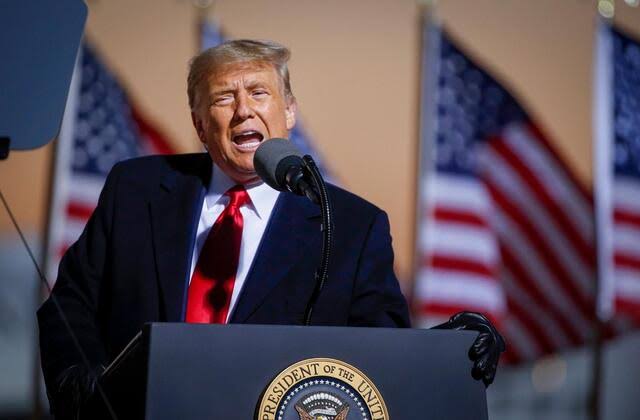By Francesca Hangeior
As President Donald Trump cracks down on immigrants in the U.S. illegally, some families are wondering if it is safe to send their children to school.
In many districts, educators have sought to reassure immigrant parents that schools are safe places for their kids, despite the president’s campaign pledge to carry out mass deportations. But fears intensified for some when the Trump administration announced Tuesday it would allow federal immigration agencies to make arrests at schools, churches and hospitals, ending a decades-old policy.
“Oh, dear God! I can’t imagine why they would do that,” said Carmen, an immigrant from Mexico, after hearing that the Trump administration had rescinded the policy against arrests in “sensitive locations.”
She plans to take her two grandchildren, ages 6 and 4, to their school Wednesday in the San Francisco Bay Area unless she hears from school officials it is not safe.
“What has helped calm my nerves is knowing that the school stands with us and promised to inform us if it’s not safe at school,” said Carmen, who spoke on condition that only her first name be used, out of fear she could be targeted by immigration officials.
Immigrants across the country have been anxious about Trump’s pledge to deport millions of people. While fears of raids did not come to pass on the administration’s first day, rapid changes on immigration policy have left many confused and uncertain about their future.
At a time when many migrant families — even those in the country legally — are assessing whether and how to go about in public, many school systems are watching for effects on student attendance. Several schools said they were fielding calls from worried parents about rumors that immigration agents would try to enter schools, but it was too early to tell whether large numbers of families are keeping their children home.
Missing school can deprive students of more than learning. For students from low-income families, including many immigrants, schools are a primary way to access food, mental health services and other support.
Tuesday’s move to clear the way for arrests at schools reverses guidance that restricted two federal agencies — Immigration and Customs Enforcement and Customs and Border Protection from carrying out enforcement in sensitive locations. In a statement, the Department of Homeland Security said: “Criminals will no longer be able to hide in America’s schools and churches to avoid arrest.”
Daniela Anello, who heads D.C. Bilingual Public Charter School in the nation’s capital, said she was shocked by the announcement.
“It’s horrific,” Anello said. “There’s no such thing as hiding anyone. It doesn’t happen, hasn’t happened. … It’s ridiculous.”
An estimated 733,000 school-aged children are in the U.S. illegally, according to the Migration Policy Institute. Many more have U.S. citizenship but have parents who are in the country illegally.

